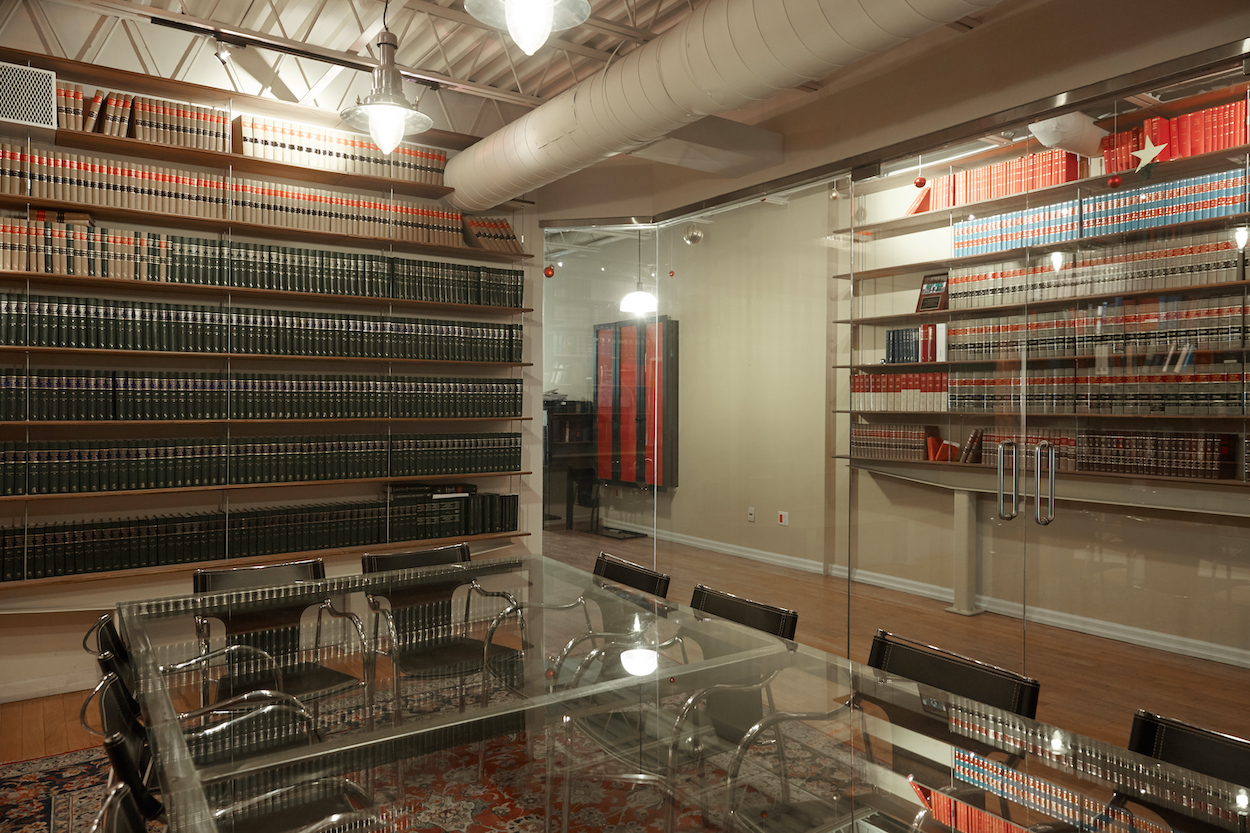Criminal defence lawyer and partner at Hicks Adams LLP Christopher Hicks has written a series of journal entries to take readers behind the scenes of something few people have exposure to: a trial for first-degree murder. In these journals, readers will experience the daily progress of a trial from the defence lawyer’s point of view, with the lawyer’s perspective on everything including witness testimony, judicial rulings and legal strategy.
Making this series especially unique is the fact that this is the first jury trial to go forward in Ontario after the start of the Covid-19 pandemic. With new safety protocols in place, everything is different from the placement of the jury, the lack of observers in the public gallery and even the freedom of movement for the lawyers.
In a nine-part series, Christopher Hicks will take readers through the highly unusual process of running a murder trial during a pandemic, providing rare insights and information as you follow along on the journey from start to finish. See previous installments by clicking on the links below:
Part 1; Part 2; Part 3; Part 4; Part 5; Part 6
Warning: This post contains graphic descriptions that may be difficult for sensitive readers.
DAY 17
Robbie McGregor testifies on his own behalf. He is not highly intelligent, sophisticated or educated. He has had few life experiences and has rarely left Peterborough. He has worked only sporadically in construction. He is a gearhead and likes to work on old cars.
The decision to testify is solely that of the client.
Counsel can give advice on this point, but cannot stop the client from testifying, nor force the client to testify.
Robbie McGregor has to testify. He is not, by background or nature, well-positioned to testify, but realistically there is little choice. His narrative of these events cannot be elicited from any other witness or source.
Robbie McGregor takes the stand as the product of hours of preparation by his counsel. He knows the importance of clearly relating the beneficial aspects of his narrative and knows as well as the perils and pitfalls.
Robbie McGregor has also been instructed on the same basics of testifying given by his counsel to every witness:
- be polite (“Yes, ma’am”, and, “No, ma’am”);
- but don’t be pushed around (“No, ma’am, that’s not true”);
- pause between the end of the question and the start of your answer (“one steamboat, two steamboat”)
- remain calm and cool – do not be provoked to anger or dramatic gestures in cross-examination;
- look at the lawyer who is asking the question but give the answer to the jury; look at them, make eye contact with one or more of the jurors, the people you have to persuade;
- tell the truth.
Robbie McGregor tells the jury that after living together for a year following the birth of their daughter, both he and MacKenzie decided they could not continue to live together. During their separation over the next 4 years, the relationship was cordial, and he had regular access to their child. Joanne MacKenzie was on social assistance and he contributed to that household.
Things changed when Joanne MacKenzie lost her social assistance. Robbie McGregor took custody of their daughter for the first time. While living with relatives, MacKenzie decided that life was meaningless without her daughter and decided to go to court to get full and formal custody. Robbie McGregor went to court in response and the relationship cooled markedly.
DAY 18
Robbie McGregor continues to testify on his own behalf.
McGregor denies that on the evening of July 1 he had urged Amanda Wells to retain Joe Williams to harm Jessup and MacKenzie. He points out that there were no texts from him to either Wells or Williams, and his alleged involvement came solely from Wells.
The next morning, July 2, was pivotal. Robbie McGregor testifies that on this day his mother, Crystal, approaches him and says his daughter had shown signs of sexual abuse the previous evening during her bath. She is alert to these indicia because of the family history with her own daughter.
Robbie McGregor in turn approaches his daughter. He testifies that his daughter says, “Mommy’s boyfriend came into the bathroom with me”. She then indicates by gesturing that her genital area was touched.
McGregor tells Pacey what his daughter had said, and then contacts Joanne MacKenzie. She is with Jessup but agrees to meet McGregor at the Tim Horton’s parking lot.
In the surveillance video, Joanne MacKenzie gets into Robbie McGregor’s pick-up truck, which immediately leaves the lot. Robbie McGregor says he is driving back to the farm so they can both talk to their daughter. Joanne MacKenzie is so anxious about this prospect, he says, that she asks to smoke marijuana to calm herself. He drives north past the farm to a field where they have smoked in the past.
Both are regular marijuana smokers, and they share a bowl in a grove of trees. The atmosphere is tense. As the two leave the grove of trees, with Joanne MacKenzie in the lead, Robbie McGregor says, “If Jessup had anything to do with sexually molesting our daughter, he will go to jail, and you will lose custody of her and only visit her behind glass”.
Robbie McGregor tells the jury that at this point Joanne MacKenzie turns around, brandishing the knife she habitually carries in her purse and attacks him with an overhand motion. As the knife comes down, he manages to grab her right wrist with his left hand, and both tumble to the ground. In the ensuing struggle, during which neither regains their footing, he gets control of the knife and begins stabbing her. Robbie McGregor says he does not stop until Joanne MacKenzie is still, no longer resisting.
Shocked and shaken and knowing Joanne MacKenzie is dead, Robbie McGregor says he panics, leaves her body there and returns to his farm. Later that evening he returns to the field. He covers her head and torso in a garbage bag because he cannot bear to look at her in death.
Robbie McGregor says he carries Joanne MacKenzie’s body out of the field and into a forest a couple of hundred metres away. The ground is soft, and he digs a grave with his hands and inters her body. He leaves several of her belongings in the field and burns her purse and cell phone in the fire pit at the farm. He tossed the knife into a swamp close to the burial site.
Robbie McGregor tells the jury that he could not process the death of Joanne MacKenzie, and thus told and retold his lie about being attacked in the parking lot until his arrest four days later.
Stay tuned for future installments in this series, which will be posted every Monday.
Christopher Hicks is one of the founding partners of the criminal law firm of Hicks Adams. He has been practicing criminal law for more than two and a half decades, with a special interest, and extensive experience, in jury trials and appeals. In the course of his career, Christopher has been involved in scores of jury trials involving the most serious crimes in the criminal code, has argued appeals of both conviction and sentence in the court of appeal on a regular basis, and has represented clients in the Supreme Court of Canada on more than a half dozen occasions.
To reach Christopher or any of the experienced and dedicated criminal lawyers at Hicks Adams, contact the firm at 416-975-1700 or online to discuss your matter in confidence.



